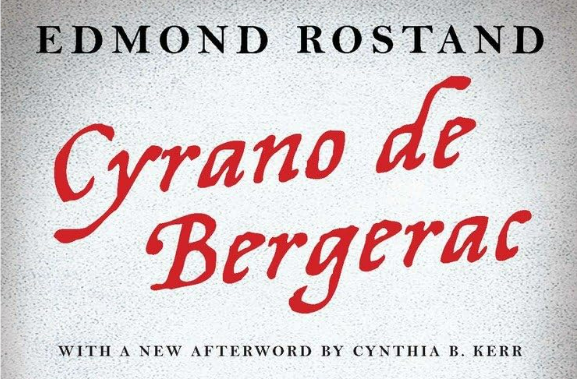Scene 2. IV.
byScene 2. IV. begins in Ragueneau’s lively bakery, a hub of activity where the arrival of various characters fills the setting with energy. Ragueneau, the baker with a passion for poetry, is introduced alongside his wife, Lise, who contrasts with his idealistic nature. While Ragueneau generously supports the artistic community, Lise seems less enthusiastic about their lifestyle. Amidst this dynamic, Cyrano is seen lost in thought, wrestling with his emotions and the desire to express his love through a letter. His eloquence is apparent in the way he contemplates his words, but beneath the surface lies a man grappling with insecurity and the fear of rejection, which is heightened by his appearance and personal circumstances.
The arrival of a musketeer adds an interesting layer to the scene, stirring curiosity among the other characters. His imposing presence immediately captivates the group, especially as they discuss his connection to a heroic act involving the defeat of eight brigands. Cyrano subtly implies that he may have been involved in this brave feat, yet his modesty keeps him from taking credit. This juxtaposition between his actions and his reluctance to claim glory speaks volumes about Cyrano’s character: a man of great courage and passion who remains humble, even in the face of deserved recognition. His internal struggle between wanting to be acknowledged and his deep-seated modesty adds complexity to his persona, making him both admirable and relatable.
As Cyrano continues to battle his inner conflict, his vulnerability becomes more apparent, especially when he struggles with writing a love letter. This moment allows a glimpse into his softer side, as he seeks to convey his feelings for Roxane in a way that is both sincere and eloquent. However, the arrival of Ragueneau’s poets shifts the tone of the scene, bringing a light-hearted contrast to Cyrano’s deep emotional turmoil. The poets, though somewhat disheveled and hungry, are filled with a joy for life and a hunger not only for food but also for poetry. Their carefree and spirited nature stands in stark contrast to Cyrano’s introspective, almost tortured demeanor. This transition from the heaviness of Cyrano’s personal struggle to the playful energy of the poets highlights the range of emotions that color the scene.
Ragueneau, ever the enthusiast for both food and art, adds to the comedic elements of the scene by reciting a recipe in verse. His playful transformation of a mundane culinary task into a poetic expression shows the seamless blending of art and everyday life, a theme that is central to his character. This moment of levity contrasts sharply with Cyrano’s serious, heartfelt attempts to express his love through writing. The poets, enjoying their food and poetry in equal measure, represent the simpler desires of the heart—seeking appreciation and fulfillment through art and sustenance. In contrast, Cyrano’s internal battle reveals a more complex yearning for love and acceptance, not just through words but through his entire being.
The chapter’s tone shifts again as the poets continue their antics, adding a sense of comic relief to the underlying emotional tension. While Cyrano remains withdrawn, his internal conflict is evident as he silently watches the interactions around him, a man torn between his desire to connect with Roxane and the fear that his appearance will prevent it. The poets, by contrast, are driven by their need for approval, both from others and from themselves, in their pursuit of art and poetry. Their focus on these more immediate desires highlights the contrast between Cyrano’s more profound, yet often self-sabotaging, aspirations for love. This dynamic also subtly reflects the varying ways people seek validation—through artistic expression, external achievements, or quiet, personal affection.
The chapter’s progression, from Cyrano’s emotional struggle to the humorous distractions provided by Ragueneau’s poets, captures the complexity of human desire. Cyrano’s longing for love and acceptance remains at the core of his actions, but the lighter moments introduced by the poets offer a break from his intense emotional conflict. These contrasts between the characters’ motivations highlight the diverse ways in which individuals experience and express their desires—whether it’s the poets’ search for recognition through their art or Cyrano’s deep, personal yearning for love that he cannot outwardly express. The chapter ultimately reflects the human need for appreciation, whether through artistic endeavors, romantic expression, or simply the quiet validation of one’s worth.
In conclusion, Scene 2. IV. skillfully blends humor, tension, and emotional depth to showcase Cyrano’s character and the relationships around him. The interplay between Cyrano’s introspective conflict and the jovial nature of Ragueneau’s poets offers a dynamic contrast, underlining the different ways people navigate their emotional landscapes. Cyrano’s struggle with love and self-expression, coupled with his reluctance to seek glory, adds layers to his persona as both a noble and tragic character. Through the actions of the other characters, particularly the poets, the scene provides a wider context for the universal themes of longing, self-worth, and the complexities of human emotion. This juxtaposition between the seriousness of Cyrano’s internal struggle and the light-heartedness of the poets enhances the narrative, making the chapter a compelling exploration of the human condition.


